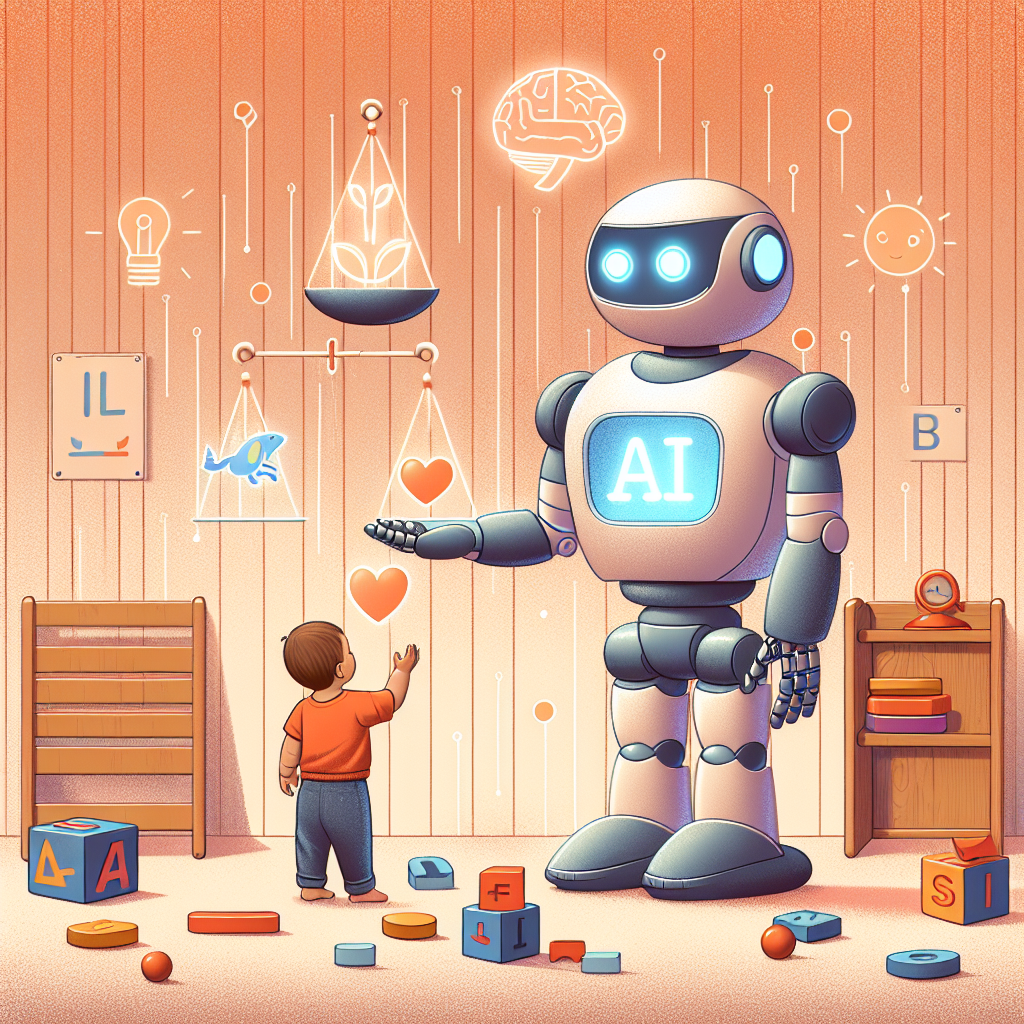Artificial Intelligence (AI) has become an integral part of our daily lives, from virtual assistants like Siri and Alexa to recommendation algorithms on streaming services. As AI continues to advance, it is increasingly being integrated into early childhood development and education. While AI has the potential to revolutionize the way children learn and grow, there are ethical considerations that must be carefully addressed to ensure its responsible use.
The use of AI in early childhood development and education raises important questions about privacy, equity, and the impact on children’s social and emotional development. As educators, parents, and policymakers navigate this new frontier, it is essential to consider the ethical implications of AI in shaping the future of education for young children.
Privacy Concerns
One of the primary ethical considerations surrounding the use of AI in early childhood development and education is the issue of privacy. AI systems collect vast amounts of data about children’s learning habits, preferences, and behaviors. This data can be used to tailor educational content to individual students, but it also raises concerns about how that data is stored and protected.
Parents and educators must be informed about the types of data that AI systems collect and how it is used. Transparency about data collection practices and the measures taken to safeguard children’s privacy is essential to ensure trust in AI technologies. Additionally, policies and regulations should be put in place to protect children’s personal information and prevent it from being misused or shared without consent.
Equity and Accessibility
Another ethical consideration in the use of AI in early childhood development and education is the issue of equity and accessibility. AI technologies have the potential to provide personalized learning experiences for children, but there is a risk that these technologies could exacerbate existing inequalities in education.
Children from disadvantaged backgrounds may not have access to the same AI tools and resources as their more affluent peers, leading to disparities in learning outcomes. It is crucial to ensure that AI technologies are accessible to all children, regardless of their socioeconomic status or background. This may require policymakers to invest in infrastructure and training to ensure that all children have equal access to AI-powered educational tools.
Impact on Social and Emotional Development
AI technologies are designed to analyze and respond to data, but they lack the emotional intelligence and empathy that human educators possess. This raises concerns about the impact of AI on children’s social and emotional development. Children learn important social and emotional skills through interactions with teachers and peers, and there is a risk that AI could limit these opportunities for growth.
Parents and educators must be mindful of the potential limitations of AI technologies in supporting children’s social and emotional development. While AI can be a valuable tool for delivering personalized learning experiences, it should not replace the role of human educators in fostering empathy, communication, and collaboration skills in young children.
FAQs
Q: How can AI be used to enhance early childhood development and education?
A: AI can be used to personalize learning experiences for children, providing tailored educational content based on their individual learning styles and preferences. AI-powered tools can also track students’ progress and provide real-time feedback to help them improve their skills. Additionally, AI can help educators identify areas where children may need extra support and provide resources to address those needs.
Q: What are the ethical considerations of using AI in early childhood development and education?
A: Some of the key ethical considerations include privacy concerns, equity and accessibility, and the impact on children’s social and emotional development. It is important to ensure that children’s personal data is protected and that AI technologies are accessible to all children. Educators and parents must also consider the potential limitations of AI in fostering social and emotional skills in young children.
Q: How can policymakers address the ethical implications of AI in early childhood development and education?
A: Policymakers can establish regulations to protect children’s privacy and ensure that AI technologies are used responsibly. They can also invest in training and infrastructure to ensure that all children have equal access to AI-powered educational tools. Additionally, policymakers can support research on the impact of AI on children’s social and emotional development to inform best practices in using these technologies in early childhood education.

